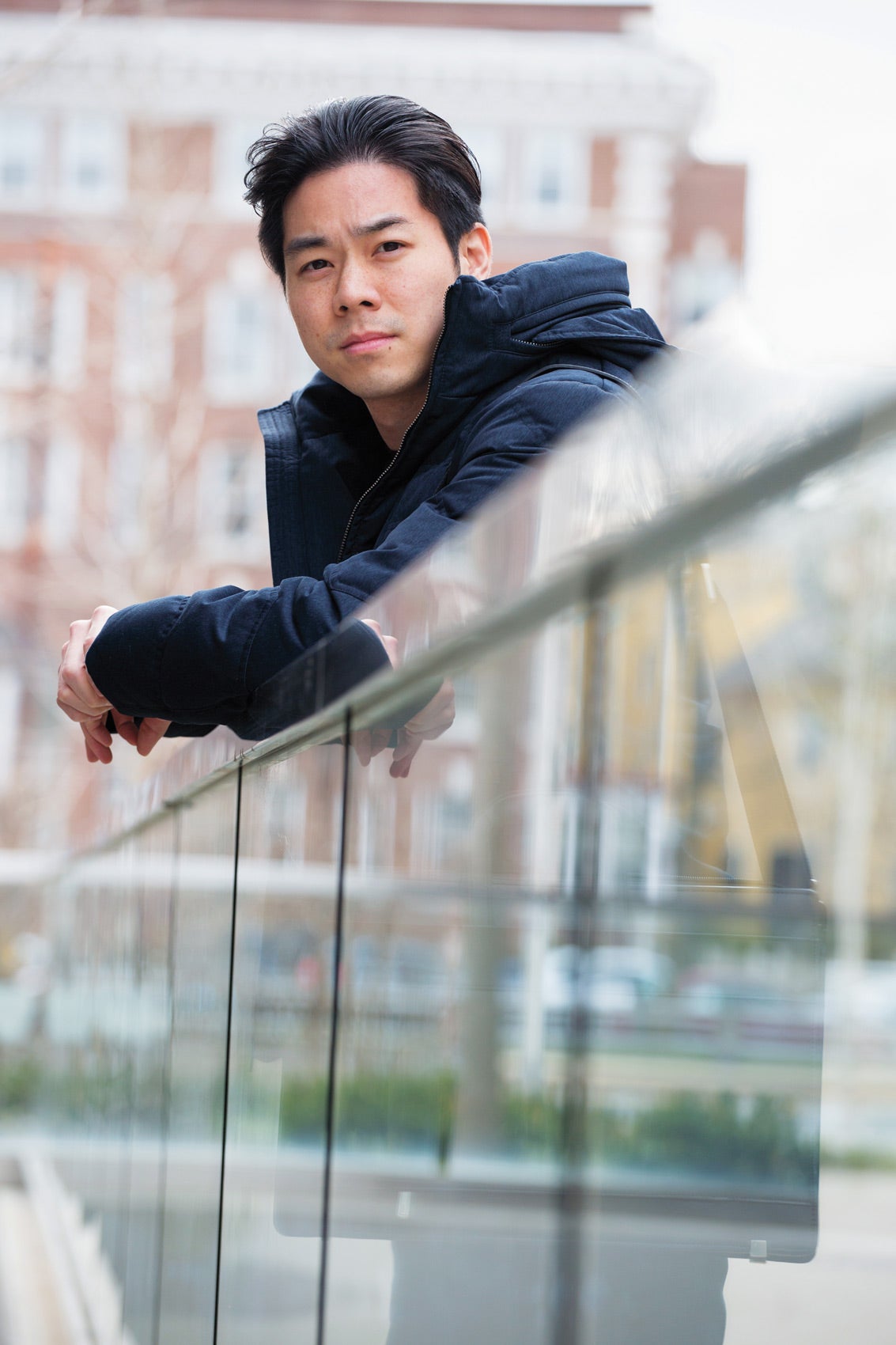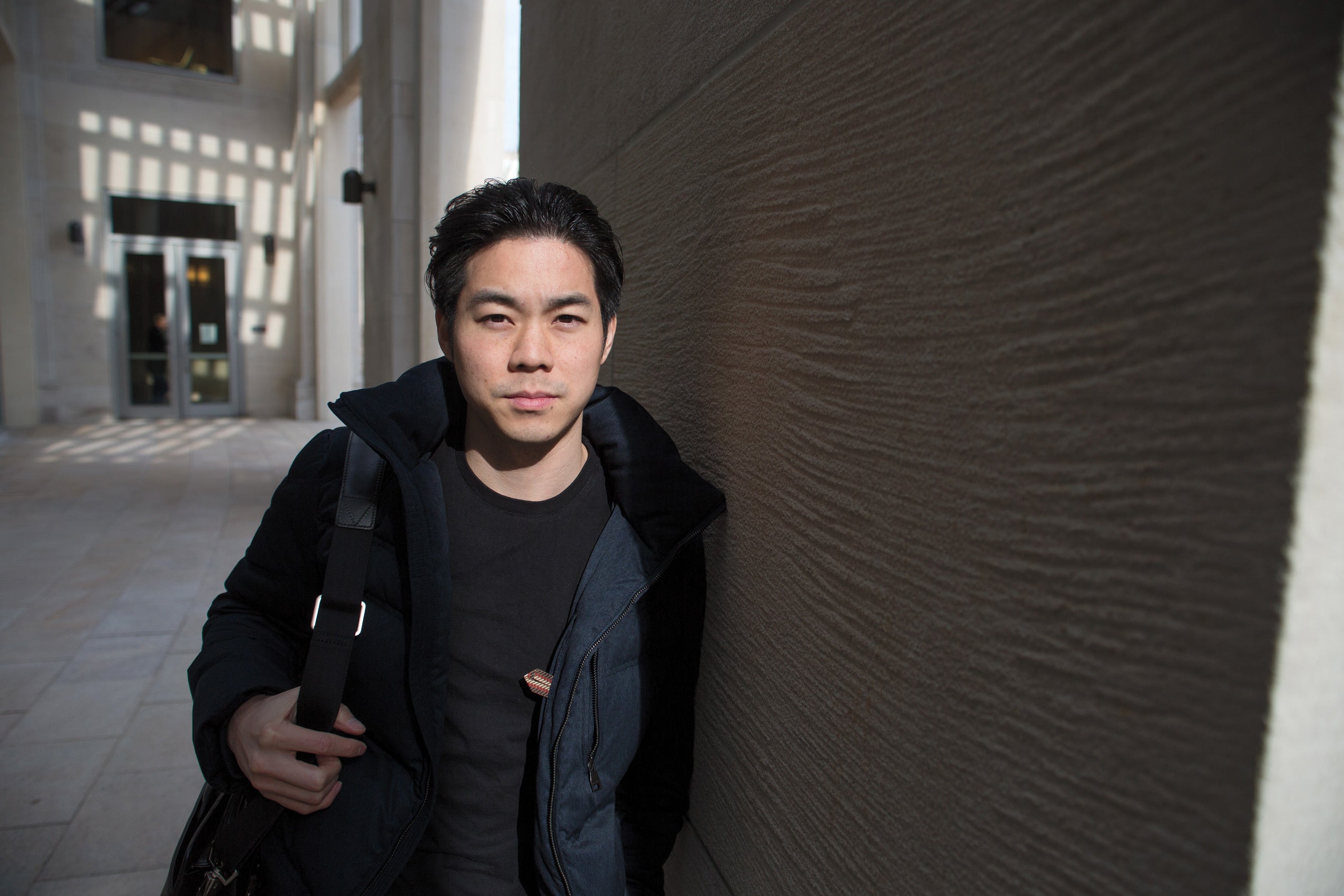Given that 63 percent of this year’s class of 1Ls had two or more years of work experience before coming to Harvard Law School, it isn’t surprising to learn there’s a former New York City police officer in the mix.
Gene Park ’18 grew up in the Bronx and was always interested in criminal justice. After attending the University of Rochester, he applied to the New York Police Department, graduating from the police academy in 2010. For five years he was assigned to East Harlem and then the South Bronx as an officer in the New York City Housing Authority.
The NYPD is responsible for the public safety of a city of nearly 8.5 million, roughly half of them minorities. Its methods, Park says, have included “broken windows” policing, which is a zero tolerance policy of cracking down on minor crimes to prevent major ones, as well as the “stop-and-frisk” practice of stopping and searching people who are suspected of having committed or planning a crime. Both tactics have been criticized for targeting minorities, and new rules now apply to stop-and-frisk.
“I loved the job inherently. I think most police officers want to do something meaningful.”
“I loved the job inherently. I think most police officers want to do something meaningful. They want to serve the community,” Park says. He found satisfaction whenever he made an arrest to protect someone or successfully “de-escalated” a dangerous situation. What was much harder to accomplish, he says, was connecting on a personal level with the people living on his beat.

He explains that an officer pausing to shoot some hoops with kids on a basketball court could be construed as “wasting job time” by supervisors focused on NYPD’s CompStat system, which tracks complaints, arrests and summons activity citywide, correlating this enforcement data with crime rate changes. Weekly meetings to review results created a pressure throughout the hierarchy, he says. “Everyone is evaluated by the numbers.”
The challenge for individual officers, Park says, was “to determine where the line is between establishing positive relationships with the community” and “bringing in the activity and the numbers that you’re being paid for.”
Complicating matters is the need to be vigilant, even in down time. He interacted every day with gang members and drug dealers. Chaos and violence can break out at any time, he explains, citing the example of two officers who were shot while sitting in their patrol car. A friend from the police academy, Officer Randolph Holder, died in the line of duty last October, pursuing a suspect who turned around and shot him.
“It’s difficult to balance those two mentalities, where you want to befriend, and grow close to the community, yet you’re trying to protect yourself.”
“It’s difficult to balance those two mentalities, where you want to befriend, and grow close to the community, yet you’re trying to protect yourself,” Park says. And some cops feel they are doing a thankless job, he adds. “In my five years, I was thanked for my service maybe once or twice.”
He believes “one of the natural parts of being a police officer is having the freedom to decide, to use your better judgment, to create better relationships.” Give officers too much discretion, he says, and the community and government fear corruption. Take it away, and officers can’t become accustomed to exercising good judgment in tense situations, “increasing the risk they may make a big mistake down the road.”
Before he left the NYPD for law school, Park says, he saw signs of an easing up on the numbers, and more receptiveness toward officers taking time for those kids on the basketball court.
This summer Park is working for the special federal litigation division in New York City’s law department. “I hope to work for the government after graduation,” he says. “My plans are to stay in criminal justice,” perhaps national security.
At HLS his greatest challenge has been making the transition from decisive cop mode to contemplative student. “As an officer, you have to turn yourself into a strong, authoritative figure. So you’re the one asking questions,” he says. “But here at the law school, I’ve actively tried to kind of break myself down, open myself up, not speak so much and see what I can absorb.”
Otherwise, “I feel like I’d be wasting my time here,” Park says. “The whole point is to try to absorb the material, the information around you, to set you off in the best direction for the next part of your life. That’s been a challenge. I think the perspective I bring from my work experience is the way I prioritize things a bit more. People here can get really stressed out. I do, too, but from what I’ve experienced and seen as an officer, I realize there are more important things one could worry about. Life-and-death situations always change you.”
